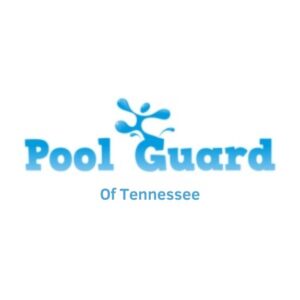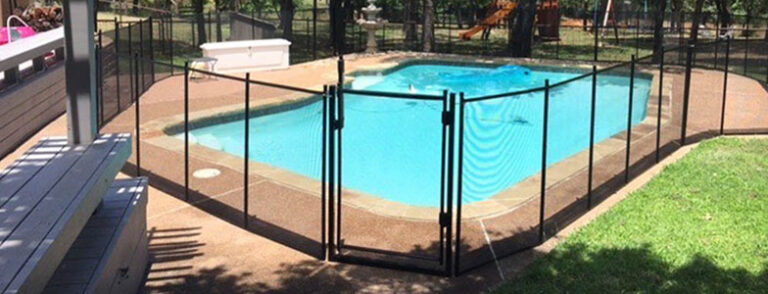
Get a free estimate today by contacting your certified pool safety fence dealer now.

Installing a pool fence in Tennessee is more than a safety measure—it’s often a legal requirement. Whether you own an in-ground, above-ground, or temporary pool, we provide fast, code-compliant pool fence installation across Tennessee. Our fences are built to meet all Tennessee pool fence laws, with climb-resistant mesh, self-closing gates, and weatherproof materials that hold up to the state’s changing seasons.
From the suburbs of Nashville to rural properties in the Smokies, we help homeowners stay compliant with local pool fence requirements in Tennessee—protecting children, pets, and property while ensuring you pass inspection the first time.
When it comes to pool fence installation in Tennessee, you need more than just a barrier—you need code-compliant safety, long-term durability, and expert service you can count on. That’s exactly what we deliver.
Here’s why Tennessee homeowners choose us:
Our experts conduct a free consultation, take precise measurements, and design a custom fence layout that meets safety standards. Once finalized, we prepare the surface, whether concrete, grass, pavers, or dirt to ensure a stable and secure installation in Tennessee.
For concrete surfaces, we use precision core drilling, while dirt or gravel areas are secured with aluminum sleeves and quick-set concrete for maximum durability. Our certified installers in Tennessee then align, secure, and assemble the panels, adjusting the tension for seamless integration and structural integrity.
We install stainless steel locking latches and self-closing gate mechanisms, ensuring secure access while preventing unauthorized entry. A final inspection is conducted to verify compliance, followed by a clean-up and a detailed maintenance walkthrough to ensure long-term durability.
When it comes to pool safety, only the best will do. Choose Pool Guard™ for unmatched security, durability, and style.
Don’t wait, secure your pool with Pool Guard™ today, and get:
Tennessee does not enforce a single statewide residential pool fence law, but most cities and counties follow the safety standards outlined in the International Swimming Pool and Spa Code (ISPSC) or adopt similar local codes. If you have a pool deeper than 24 inches, chances are a fence is required.
All pools must be surrounded by a fence at least 48 inches tall with a secure, self-closing, self-latching gate. Permits and inspections are required.
Private pools must be enclosed by a 4-foot fence with gates that meet child-safety standards. Barriers must prevent a 4-inch sphere from passing through.
Above-ground and in-ground pools require fencing. If a deck is attached to an above-ground pool, it must have a compliant barrier and secure gate access.
A permit is required for pools deeper than 24 inches. A fence at least 48 inches high must surround the pool area, including spas and hot tubs.
All pools must be enclosed by a compliant safety barrier with proper latch height and spacing. A final inspection is required before filling the pool.
Enclosures must be a minimum of 4 feet high and built with non-climbable materials. Entry points must use self-closing and latching hardware.
Barriers are required for all residential pools. Above-ground pools must have secured access points or be enclosed with a separate fence.
All residential pools must be fenced, with a minimum height of 48 inches. Enclosures must be child-safe and meet access control standards.
Residential pools require a 4-foot barrier with no gaps or footholds. Gates must swing away from the pool and close/lock automatically.
Pool fences must be at least 48 inches tall, with gates that self-close and latch. Permits are typically needed before construction.
Yes. In most counties, if your above-ground pool holds more than 24 inches of water, it must be enclosed. If the pool walls are at least 48 inches tall and not climbable, they may count as the barrier—but access ladders must be removable or lockable.
Yes. In most jurisdictions, including Nashville, Memphis, and Knoxville, installing a pool fence requires a permit. Final inspection is also typically required before the pool can be used.
Mesh pool fences, aluminum, vinyl, and wood are commonly accepted—as long as they meet code. Chain-link fences are sometimes restricted in new builds due to climbability. We make sure your pool fence installation in Tennessee uses approved materials.
No. Most jurisdictions in Tennessee do not allow covers or alarms to replace the fence requirement, especially for in-ground pools. A compliant fence is still required under most codes.
We install code-compliant pool fences across Tennessee, including Nashville, Memphis, Knoxville, Murfreesboro, and surrounding counties. Our fences are safe, fast to install, and meet all local laws.
Yes, in many counties, a wall of the home can count as part of the barrier—but only if doors leading to the pool have self-latching locks or alarms installed. This is especially common in tighter lots or urban areas.
Our mesh pool fences are made for the region’s heat, humidity, and storm cycles. On average, they last 10–15 years with minimal maintenance. They won’t rust, warp, or fade like metal or wood.
Pool Guard USA is a US-based pool safety equipment manufacturer specializing in pool fences, pool covers, pool safety nets along with installation services throughout the United States.
Please fill out the form below with your information. Your local dealer will be notified about your inquiry.
Please fill out the form below with your information. Your local dealer will be notified about your inquiry.